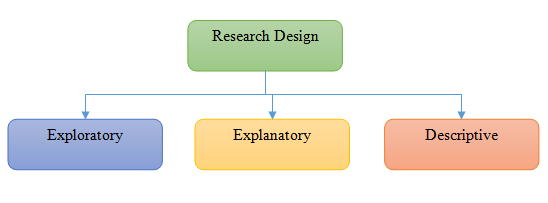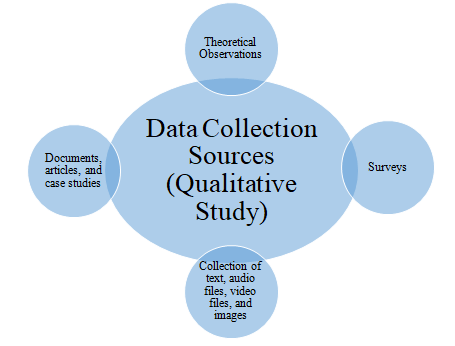Research Assignment Outlining Descriptive Methodology Approach
Question
Task: In the research assignment, outline what methodology you used in your research i.e. what you intend to do and how you intend to do it?
Answer
Research Methodology
The research methodology used in this research assignment should be dependent on nature of research questions and intended design of the research. The study approach should be followed as deductive based on secondary research works and the data collection would be performed for conducting descriptive research work. The descriptive methodology approach would be effective in this study as this research deals with corporate white papers, different research articles, and previous works related to the similar agenda [1]. This will help in strategizing the objectives of the projects and also interconnecting the relation between the research questions. The secondary analysis helps in presenting the critique over the research done by other authors on the respective concern or topic. This will also contribute in broadening the concept of the topic and relating with the ongoing research. The qualitative data technique over secondary studies would align the previous observation and findings to reach suitable conclusion and judgement on the agenda. The entire focus of research assignment will be on presenting the succinct research particularly on the research questions and try to find out the answers those could help this research.
Research Design and Method Outline
The research design should emphasize on logical application of the studies and representation of the previous findings in a specific order. The research would include observation data analysis from qualitative data collection process. Hence, the philosophy should comprise both positivism and interpretivism approach. The realism should focus on these two approaches to carry out the qualitative analysis. The research approach should be deductive along with application of theories from earlier study findings or fundamental learning process [2] [3]. The deductive application of research should revolve around existing knowledge and connecting the knowledge with findings to reach specific learning. This will guide the research throughout project, and will help in being realistic and reliable as the critical analysis will be made on the researches done by other scholar authors. Therefore, the descriptive methodology should assist deductive design to conduct this particular research.

Figure 1: Research Design types [4]
Moreover, the inductive design is avoided as this study is not intended for new theory representation or establishment; there is significant amount of resources corresponding to the research agenda. Therefore, deductive design is more convenient to address descriptive methodological approach. The research should follow chronological order to collect qualitative findings on the topic for clear understanding of research advancements. Series of different articles available online and open will be selected for this purpose. The reliability of the research assignment will be analyzed prior presenting the critique on the concepts.
What is the role of qualitative methodology and its application within the research assignment?
Here qualitative methodology is considered as primary approach for research and data collection according to these research objectives. This methodology has put its approach and its essence to collect non-descriptive data and analyze them for understanding opinions, concepts and experiences. This method is useful for gathering suitable insights about the chosen problem and formulates new ideas as a result of the research [4] [5]. Qualitative research is entirely different from statistical reasoning and Numerical Data based analysis to portray the outcomes. Hence, the qualitative analysis is generally useful and convenient for social studies and research on people over certain disciplines such as sociology, history, health sciences, education, and others.
Data Collection using Qualitative Methodology
In this research agenda, common Qualitative methods would include theoretical observations, surveys, secondary research and facts finding. Planned research activity would require searching relevant documents, articles, and case studies regarding blockchain implementation in banking and financial industry. As there is no sample group of people is involved; hence, no primary study is essential in this agenda and interviewing is avoided. However, if the findings do become complex or broad item in the given scenario, a group of individuals can be selected for participating in the research. A questionnaire will be prepared consisting of 10 questions specific to the research area. The gathered result can be effective in integrating the results and reaching at concise findings. Previous works and research papers would be considered as sources of facts finding, surveying, and theoretical observations. In other words, findings from these papers and secondary sources would be noted in details for analytical discussion purpose. In case multiple papers or research works are found with similar outcomes, then these papers would be surveyed to list out their findings, researchers’ remarks, limitations, and future work plans. Collection of text, audio files, video files, images, and others are considered as secondary study; in this particular research agenda; this approach would be useful [6]. More importantly, the researcher himself acts as an ‘instrument’ to the study; as the researcher has to experience all previous explorations, observations, findings, and outcomes and then the researcher has to portray these collected data under personal viewpoint. Hence, the focus should be entirely fixed on previous data-points, their critical evaluation, findings and remarks. Ethics will be maintained throughout the data collection process and analysis. Proper citation process will be used with exact referencing of the source from where the information is being collected or used. The participants selected for the research will be shared a consent form in which all descriptions will be there of maintaining privacy and using their information for the research only. A request will also be made for providing the non-biased response on the queries and questions asked. The request will clearly define the nature of the research and the approaches being made for contributing in the technological field. This will help in informing the participants that the information being used will be for academic purpose only and it will be a contribution to the society.

Figure 2: Data Collection Sources in Qualitative Study
Data Analysis using Qualitative Methodology
Qualitative research is advantageous as it preserves participants’ opinions and their perspectives in the research; that can be modified based on research questions being changed or new research questions are asked. This methodology is known for its flexibility; where, analysis and data collection can be adapted based on changes in patterns and ideas of research [3]. These patterns are not fixed or determined to be kept rigid during the entire study. Collection of data is realistic in terms of context and collection method. The qualitative research is led based on feedbacks and insights from human experience, perceptions, and their feel; so that systems can be improved later. This method used in the research assignment can help with generating new ideas while exploring the research agenda. However, real-world data often makes qualitative research unreliable due to several factors affecting its value and validity [5]. Based on researchers, the relevance of outcome is determined and it would highly vary between multiple researchers while there are showing their individual viewpoint on a single agenda. Moreover, the qualitative research requires significant amount of effort, time, and data analysis.?
References
[1]. Janssen, M., Weerakkody, V., Ismagilova, E., Sivarajah, U. and Irani, Z., 2020. A framework for analysingblockchain technology adoption: Integrating institutional, market and technical factors. International Journal of Information Management, 50, pp.302-309.
[2]. Popova, N.A. and Butakova, N.G., 2019, January. Research of a possibility of using blockchain technology without tokens to protect banking transactions. In 2019 IEEE Conference of Russian Young Researchers in Electrical and Electronic Engineering (EIConRus) (pp. 1764-1768). IEEE.
[3]. Sakho, S., Jianbiao, Z., Essaf, F. and Badiss, K., 2019, December. Improving Banking Transactions Using Blockchain Technology. Research assignment In 2019 IEEE 5th International Conference on Computer and Communications (ICCC) (pp. 1258-1263). IEEE.
[4]. Wang, H., Ma, S., Dai, H.N., Imran, M. and Wang, T., 2020. Blockchain-based data privacy management with nudge theory in open banking. Future Generation Computer Systems, 110, pp.812-823.
[5]. Zhang, L., Xie, Y., Zheng, Y., Xue, W., Zheng, X. and Xu, X., 2020. The challenges and countermeasures of blockchain in finance and economics. Systems Research and Behavioral Science, 37(4), pp.691-698.
[6]. Zhu, C. and Fu, Z., 2020. Research on the Development Trend of Traditional Financial Industry Based on Blockchain Technology. Asian Journal of Research in Computer Science, pp.1-6.












